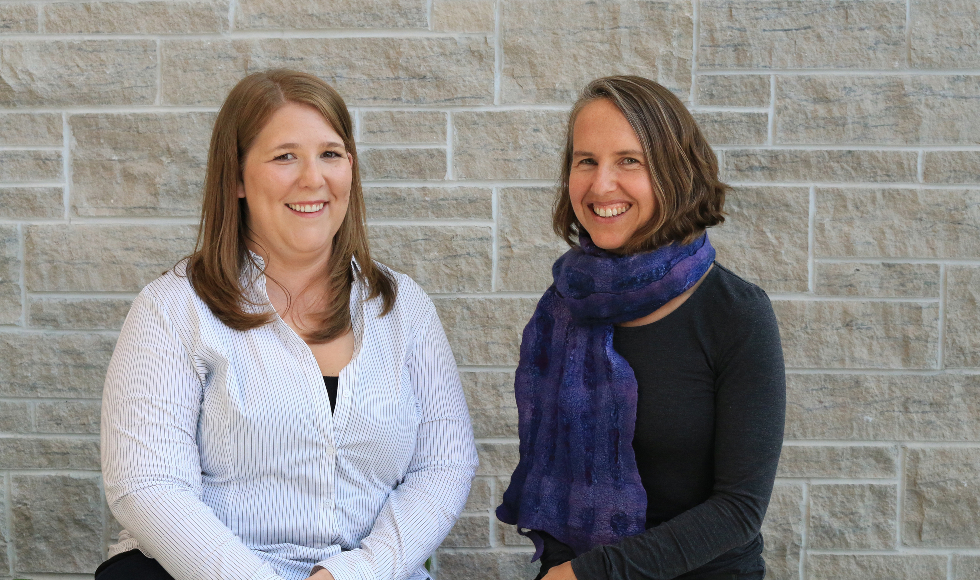Study finds polyamorous families face stigma during pregnancy and birth

Polyamorous families experience marginalization during pregnancy and birth, but with open, nonjudgmental attitudes from health-care providers and changes to hospital policies, this can be reduced, says research from McMaster University.
It is estimated one in five single Americans has engaged in consensual non-monogamy, and interest in these types of relationships seems to be increasing. People who identify as gay, lesbian or bisexual are more likely to be in consensual non-monogamous relationships.
Few studies exist on the experiences of polyamorous families in health care, and it appears there are none on experiences during pregnancy and birth.
“Given the high proportion of polyamorous individuals who are of child-bearing age and the substantial potential for stigma, it is important to investigate polyamorous individuals’ experiences with reproductive care providers to better inform practice,” wrote Liz Darling, senior author of the study and assistant dean of midwifery at McMaster. Darling is also an associate professor of the Department of Obstetrics and Gynecology.
The study, called The Polyamorous Childbearing and Birth Experiences Study (POLYBABES), has been published by the Canadian Medical Association Journal (CMAJ). The other authors with Darling were fourth-year midwifery students Erika Arseneau and Samantha Landry.
Several themes emerged in this qualitative study of 24 participants, including 11 birthing individuals who gave birth within the last five years, and 13 of their partners. They concluded that:
- Participants deliberately planned families, choosing health-care providers who they thought would be less discriminatory because of relationship status.
- More partners means more support, although some partners were not able to fully share this support because of discomfort in disclosing polyamorous relationships.
- People in polyamorous relationships often chose to disclose their status when it was medically relevant, and they received both positive and negative reactions from health-care providers.
- Navigating the health system presented challenges, including administrative barriers, in which forms did not have enough space for additional partners, or newborn identification bracelets that could be issued for only two parents.
- To improve health-care experiences for polyamorous families, the study participants suggested health-care providers should acknowledge the partners’ presence and roles, be open and nonjudgmental, adapt administrative forms and procedures, and advocate for patients and their families.
“We call it the 3 A’s: acknowledge, ally and advocate,” said Arseneau. “Three things that could drastically improve care for polyamorous families and that can be implemented in real time by adjustments to care providers’ individual practice.”
The authors state that substantial work needs to be done to remove marginalization experienced by these families in the health-care system.
In a related commentary, Sharon Flicker of California State University’s Department of Psychology wrote: “[R]educing providers’ implicit biases toward sexual minority groups, and patients in consensually non-monogamous relationships in particular, is vital to addressing health disparities.
“Health-care providers have an opportunity to mitigate this stress by providing inclusive environments and sensitive health care.”
Read the paper here.
Read more at Brighter World.
Brighter World, Erika Arseneau, In the News, Liz Darling, Midwifery Research NewsRepublish this Article

We believe in the free flow of information. This work is licensed under a Creative Commons Attribution-No Derivs 2.5 Canada (CC BY-ND 2.5 CA), so you can republish our articles for free, online or in print.
All republished articles must be attributed in the following way and contain links to both the site and original article: “This article was first published on Midwifery Graduate Program. Read the original article.”
Media Enquiries
- Phone
- (905) 525-9140 ext. 24073
- comms@mcmaster.ca
The Communications and Public Affairs Office is staffed from 8:30 a.m. to 4:30 p.m.
Monday to
Friday.
The University has a broadcast quality television studio to facilitate live and pre-recorded interviews with media. Learn more about our experts.
